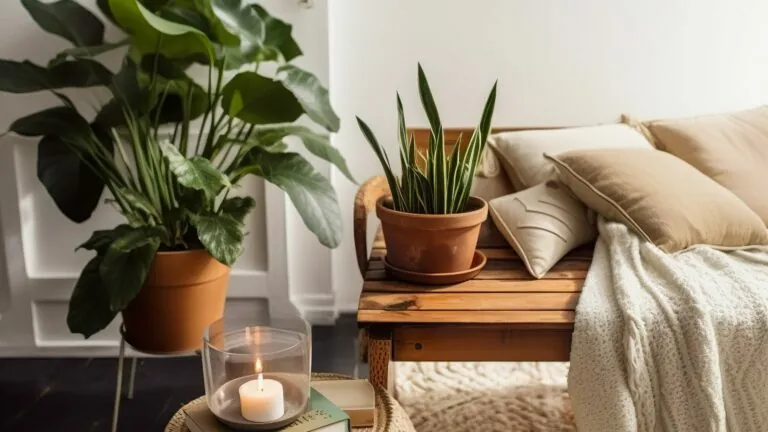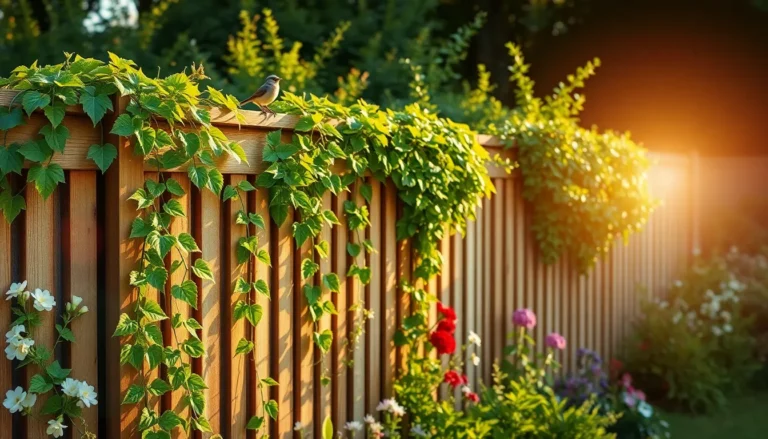Table of Contents
ToggleGardening isn’t just a hobby; it’s a superpower that transforms ordinary women into plant whisperers. Armed with trowels and a sprinkle of patience, they cultivate lush landscapes that rival the most breathtaking botanical gardens. Who knew digging in the dirt could unleash such creativity and joy?
With every seed planted, women aren’t just growing vegetables or flowers; they’re cultivating confidence, resilience, and a sense of community. Whether it’s a tiny balcony or a sprawling backyard, gardening offers a unique escape from the daily grind. Plus, it’s an excellent excuse to wear those funky sun hats and channel your inner botanical diva.
Join the ranks of women who dig deep into the earth, nurturing life while having a blast. It’s time to swap those high heels for gardening gloves and embrace the dirt—because every garden tells a story, and it’s time to let yours bloom.
The Importance of Woman Gardening
Gardening plays a vital role in enhancing women’s well-being. It contributes to physical health by encouraging exercise through activities like digging, planting, and weeding. Engaging in these tasks can lead to improved cardiovascular health, increased strength, and enhanced flexibility.
Mental well-being thrives in the garden. Spending time with plants reduces stress and anxiety while boosting mood. Women experience a sense of accomplishment as they nurture their gardens, fostering emotional resilience.
Creativity blossoms when women garden. They explore design and color combinations, cultivate a unique aesthetic, and express their personalities through plant selections. This creative freedom can serve as an excellent outlet for self-expression.
Women can also form strong communities through gardening. Local gardening groups create opportunities for skill-sharing, allowing women to exchange tips and tricks. These interactions cultivate friendships, creating networks of support and collaboration.
Gardening provides essential life skills. Women learn patience as they wait for seedlings to grow and perseverance when faced with gardening challenges. These lessons translate into everyday life, enhancing problem-solving abilities.
Environmental awareness rises as women garden. They develop a deeper understanding of ecosystems, biodiversity, and sustainability practices. This knowledge empowers them to make environmentally conscious choices in their own lives.
Flowering gardens can inspire leadership. Women often take charge of community gardening projects, demonstrating their ability to lead and influence. These projects create lasting impacts in neighborhoods, fostering collaboration and growth.
Embracing gardening enriches women’s lives in various ways, both personally and socially. It cultivates not just plants but also resilience, creativity, and community bonds.
Benefits of Gardening for Women

Gardening offers numerous advantages specifically for women, enhancing their physical and mental health in various ways.
Physical Health Benefits
Engaging in gardening activities promotes exercise, which improves cardiovascular health. Digging, planting, and weeding contribute to increased strength and stamina. Regular physical activity lowers the risk of chronic diseases and aids weight management. Studies show that spending time outdoors boosts vitamin D levels, essential for maintaining strong bones. Gardening also encourages healthier eating by fostering a connection to fresh produce, which can lead to better nutrition habits. Overall, physical engagement through gardening supports lifelong well-being.
Mental Health Benefits
Gardening provides a significant boost to mental health by reducing stress and anxiety levels. Engaging with nature encourages mindfulness, which promotes emotional resilience. A sense of accomplishment arises from nurturing plants and witnessing their growth, enhancing self-esteem. Women often find joy in the creative expression of designing their gardens, which can lead to greater satisfaction. Connection with local gardening communities fosters friendships and support, further alleviating feelings of isolation. Ultimately, these mental health benefits create a more balanced and fulfilling life.
Tips for Women Gardeners
Women gardeners can enhance their gardening experience with practical strategies. Implementing these tips can lead to a more enjoyable and successful gardening journey.
Choosing the Right Plants
Selecting suitable plants for individual environments proves essential. Start by considering climate, soil type, and sun exposure. Native plants often thrive better, requiring less maintenance and supporting local ecosystems. Exploring options like perennials provides lasting beauty each year, while annuals offer vibrant displays throughout the season. Incorporating herbs or vegetables encourages healthy eating and culinary creativity. Prioritize plants that match skill levels, ensuring gardening remains fulfilling. Engaging with local nurseries can provide valuable insights and recommendations, promoting successful plant choices.
Gardening Tools and Equipment
Investing in quality gardening tools streamlines tasks and enhances comfort. Essential tools include gloves, trowels, and pruners, tailored specifically for women’s needs. Ergonomic designs minimize strain while maximizing efficiency during gardening sessions. Consider lightweight options, making them easier to handle for longer periods. Storing tools in a dedicated, organized space fosters accessibility and encourages frequent gardening activity. Utilizing raised garden beds can ease physical strain, making maintenance more manageable. Adopting proper equipment ensures women can fully enjoy their gardening experiences while promoting health and well-being.
Inspiring Stories of Women Gardeners
Women across the globe engage in gardening, transforming their lives through vibrant plants and innovative landscapes. One remarkable story comes from Maria, who turned her suburban backyard into a flourishing vegetable haven. She noticed that her family’s health improved significantly after incorporating her homegrown produce into their meals.
Another inspiring tale features Lisa, an urban gardener, who cultivates small herb gardens on her balcony. Her passion not only beautified her space but also reinforced her commitment to sustainable living. By sharing her herbs with neighbors, she fostered connections within her community, illustrating how gardening cultivates friendships.
In the Midwest, Anna operates a community garden. She empowers local women by teaching them gardening skills that emphasize resilience and teamwork. Participants reported increased confidence and emotional well-being after engaging in gardening activities, highlighting the positive impact of shared experiences.
The story of Chen stands out as well. She initiated a project focused on environmental awareness through gardening. By involving youth in planting trees and flowers, Chen instilled a sense of responsibility towards nature. Her initiative inspired participants to adopt eco-friendly habits, demonstrating how women can lead important environmental changes.
Additionally, a group of women in the South established a support network for aspiring gardeners. They convene regularly to exchange tips, nurture creativity, and celebrate each other’s successes. Members note significant improvements in their personal lives and mental health.
These diverse stories showcase how women gardeners enrich their lives and communities. They highlight the transformative power of gardening, emphasizing creativity, connection, and environmental stewardship.
Challenges Faced by Women in Gardening
Women encounter specific challenges in gardening that can hinder their experience and success. Cultural perceptions often limit women’s participation, suggesting gardening as a less serious pursuit compared to other activities. This stereotype can discourage women from investing time and effort into their gardens.
Access to resources presents another obstacle. Many women face difficulties obtaining quality tools, supplies, and knowledge. The imbalance in education about gardening practices can create barriers for those without experience. Local gardening clubs, however, often serve as invaluable support systems, providing mentorship and shared resources.
Physical limitations can also pose significant challenges. Some women may struggle with mobility issues or health conditions that make traditional gardening physically taxing. Ergonomically designed tools can alleviate discomfort and make gardening more accessible for everyone. Raised garden beds and container gardening offer additional solutions to ease physical strain.
Time constraints frequently affect women’s ability to engage in gardening. Balancing work, family, and other responsibilities leaves little room for cultivating gardens. Community gardens provide options, allowing women to share resources and collectively manage gardening tasks. This shared commitment can foster camaraderie and enhance overall gardening enjoyment.
Safety concerns can deter women from gardening, particularly in urban areas. Issues like crime or unsafe outdoor environments contribute to anxiety about gardening outside. Organizing local networks to promote safe gardening practices can build supportive environments where women feel secure while gardening.
Overall, these challenges illustrate the need for greater awareness and solutions. Addressing these obstacles can empower women to embrace gardening fully and experience its numerous benefits without hindrance.
Gardening offers women a unique opportunity to cultivate not just plants but also personal growth and community connections. By embracing this fulfilling activity, they can unlock their creativity and enhance their well-being. The benefits extend beyond physical health to include emotional resilience and a sense of accomplishment.
Through shared experiences in gardening, women can foster friendships and support networks that enrich their lives. Despite the challenges they may face, solutions are available to help them thrive in their gardening pursuits. Ultimately, gardening serves as a powerful tool for women to express themselves and make lasting impacts in their communities.


